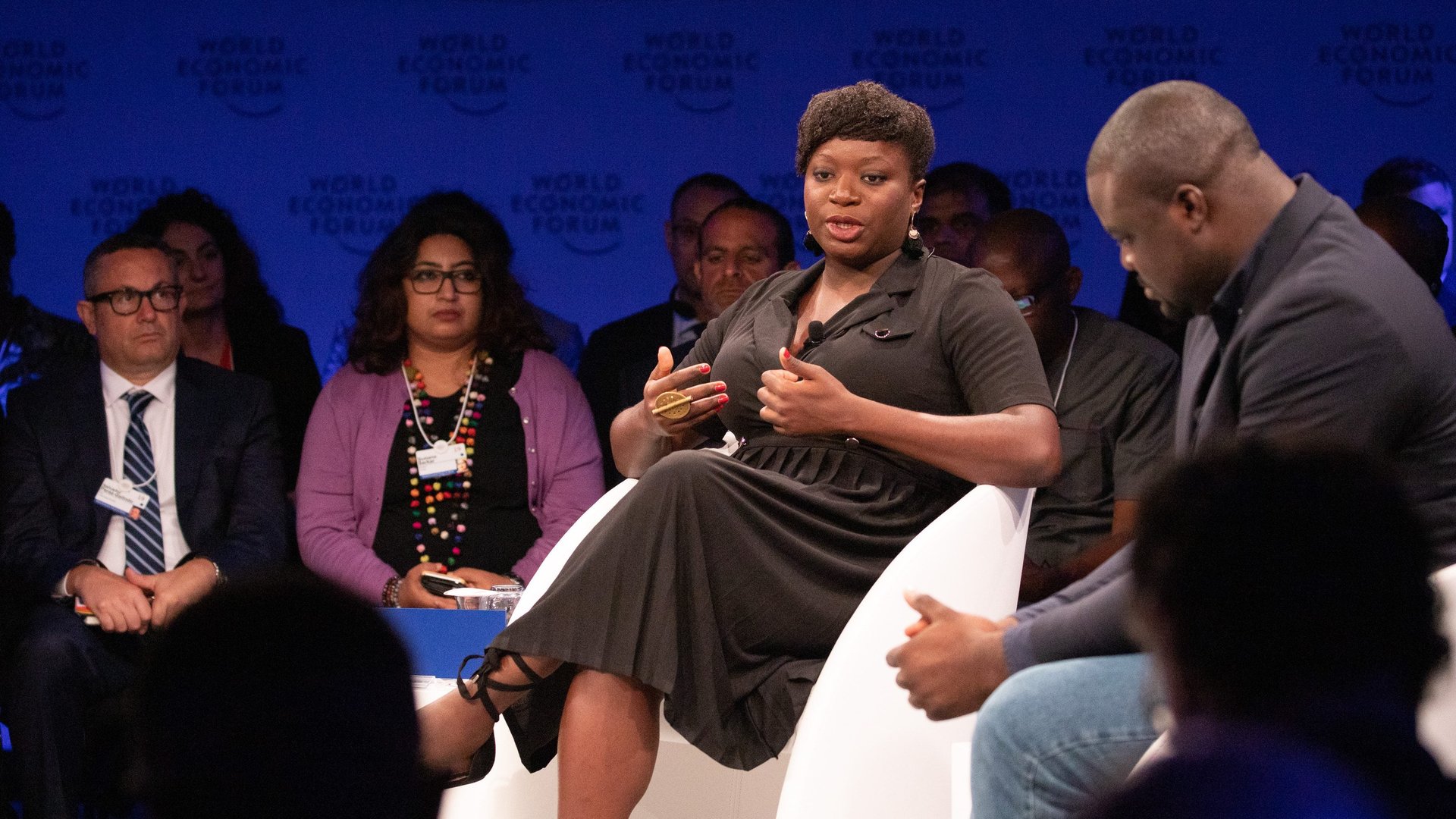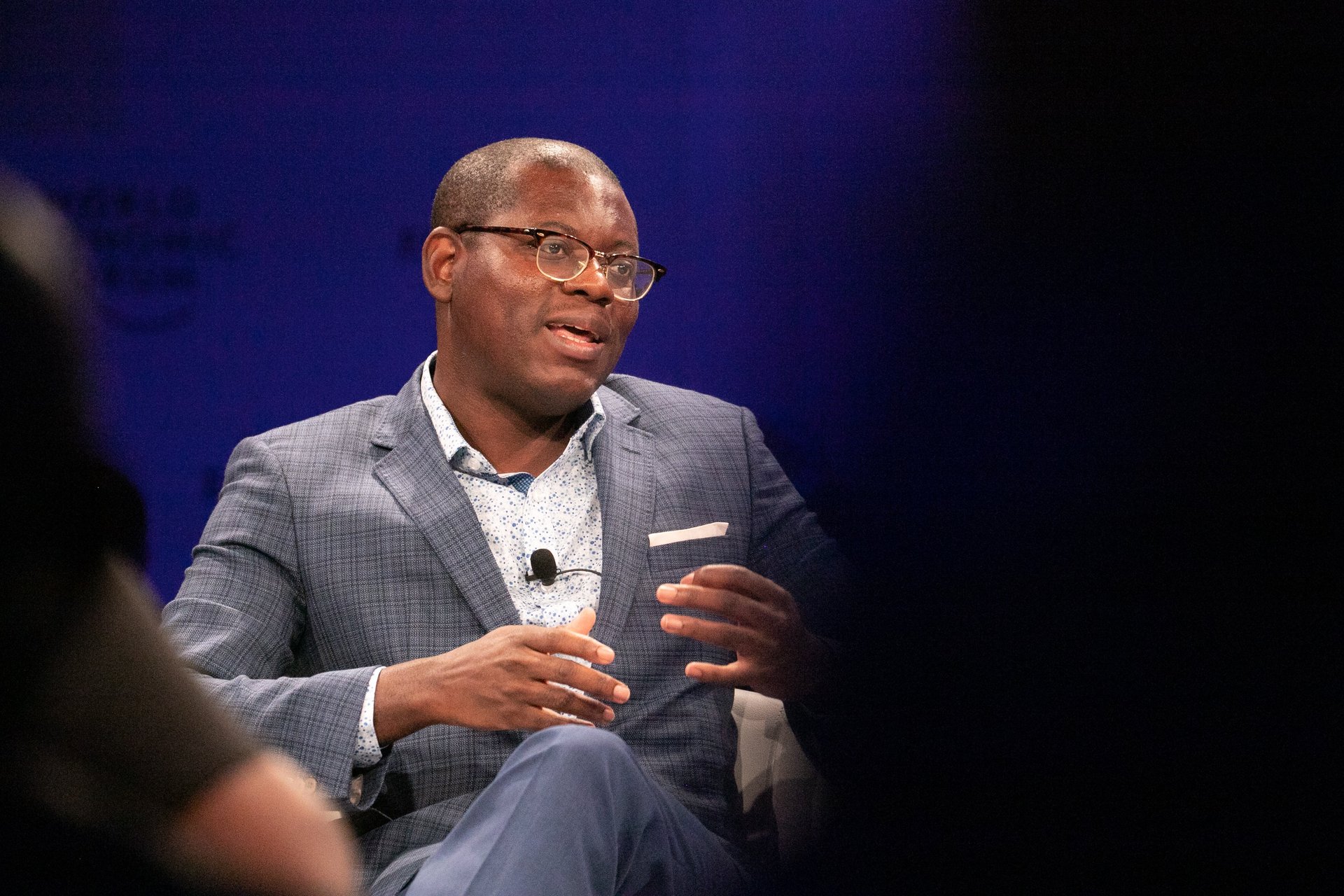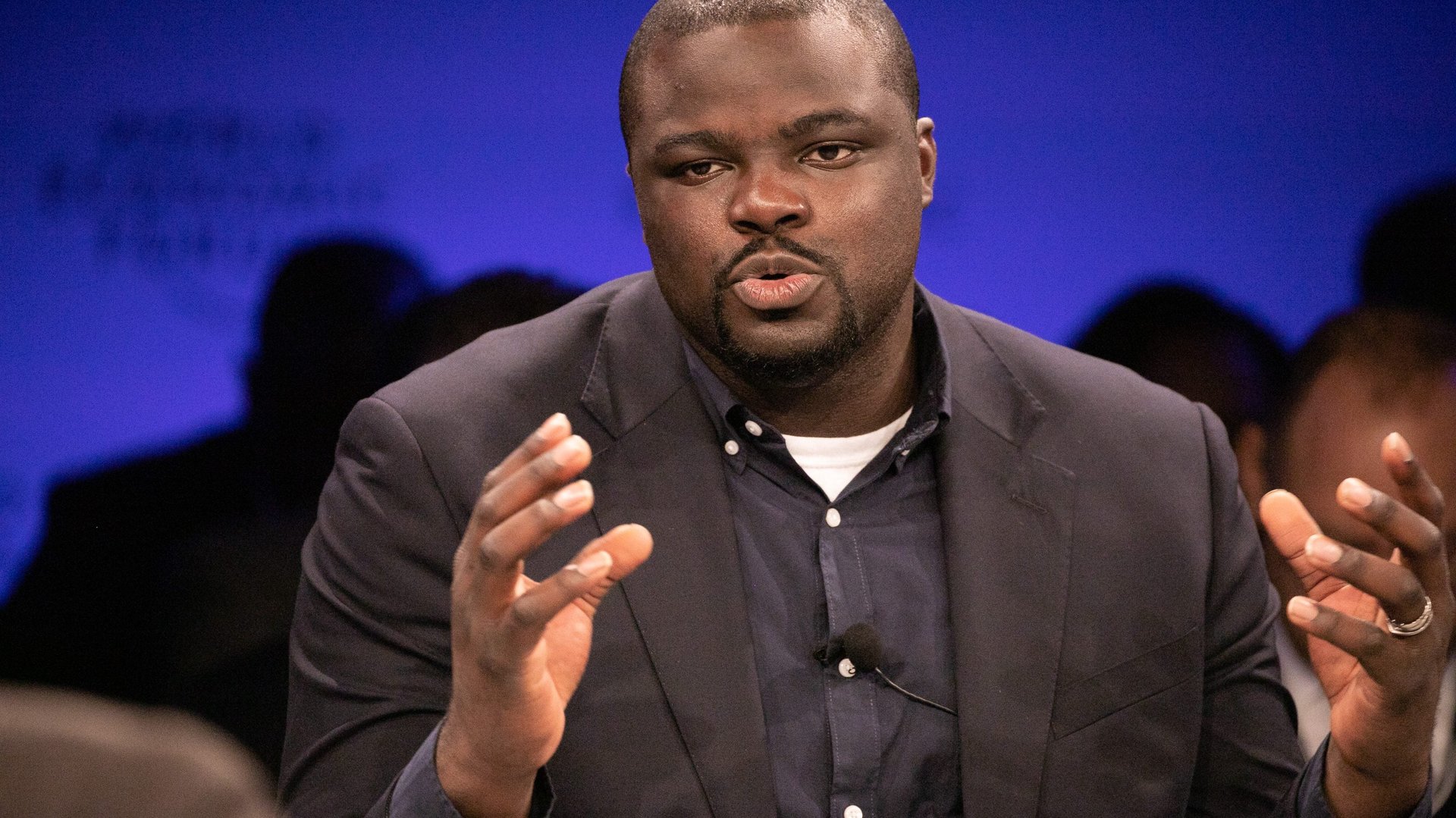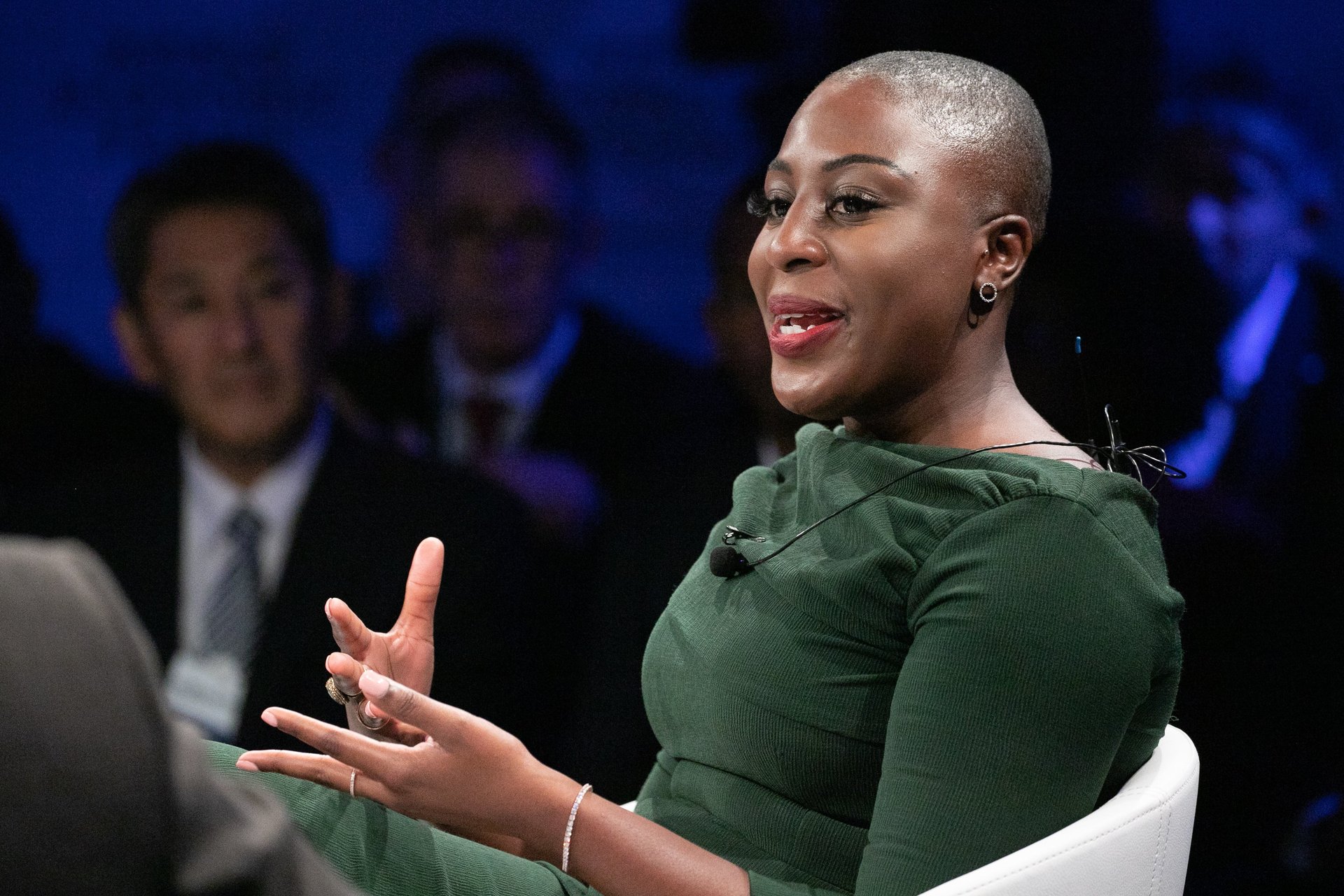Africa’s innovators say their scrappy skills are needed to fix an unlikely problem—politics
African innovators have been lauded globally—including here at Quartz Africa—for their ability to create critical solutions amidst tough economic, political, and social realities. Yet more often than not, bad policies rather than bad luck have hindered the potential of these innovations and their ability to help more people.


African innovators have been lauded globally—including here at Quartz Africa—for their ability to create critical solutions amidst tough economic, political, and social realities. Yet more often than not, bad policies rather than bad luck have hindered the potential of these innovations and their ability to help more people.
The question around how entrepreneurs and founders can address this came up at the Quartz Africa Innovators panel held as part of the World Economic Forum in Cape Town today. Asked about how the role of innovators in Africa was evolving, here’s what some of the pacesetters had to say:

Bright Simons, president, MPedigree
“From the commercial and economic point of view, there’s increasing understanding that there’s money to be made. … Socially, there’s some awareness that some of our problems could be solved through innovation. … What is not entirely apparent in the transformation of mindset that’s happening is that there’s a geopolitical dimension to this. I see myself and the work that I do with my organization as defenders of African sovereignty. We can’t allow our continent to become a dumping ground for crap from other countries. To do that, we need to build supply chain systems, regulatory systems, and defend them. And we need to have the technology and the systems to defend them. And no one is going to do that except us because we are the ones in the bull’s eye. … The problem is that that narrative hasn’t yet become much more widespread: this idea of the political economy of innovation.”

Iyinoluwa Aboyeji, managing partner, Street Capital
“You need to start with the politics before you get to the geopolitics. And this is my one concern: it’s that before you get to think about commercial innovators—which is most of what we are, as people who can defend the interest of a country—and not be subverted by what I call “government-preneurs” because often times when that argument is made what they are saying essentially is ‘hand over the entire country’s sugar or cement supply to Dangote.’ That’s not what we are trying to say here. But we are trying to say is, first of all, the politics has to change. And I think that’s what there’s a growing understanding of: that entrepreneurs can’t just sit back, do their business and hope that they will be able to deliver value for their customers and ensure that their customers can continue to afford their products because there’s prosperity and there’s purpose in society.”
“But now we are starting to come to a realization that we have to start getting involved in the politics as well. And that means we probably have to wholesale sweep out the government through democratic processes, of course, then we can get to the point where geopolitics then becomes a topic. But if we don’t handle the politics, what happens is that geopolitics becomes an instrument of protectionism, which affects global trade and becomes a tool for further impoverishing the poor who we are trying to support. … I don’t want entrepreneurship as it’s currently used today to be a tool for further impoverishing the poor. I want it to be a platform for ensuring everybody has prosperity and purpose within their reach.”

Fatoumata Ba, founder/CEO Janngo
“Bright spoke about innovators being defenders. I think it’s innovators who should also see themselves as enablers. For instance, my motivation to become a venture capitalist was to become a double bottom line venture capitalist bringing profits but trying to solve market failures. … To give you a concrete example, I started deploying capital in Côte d’Ivoire last year trying to help farmers export globally. The reason why is that sometimes logistics costs can be as high as 75% of the goods sold. It’s compared to 6% in the US. It’s impossible to be on a level playing field. And this way we were able to give them access to the global market but it wasn’t enough.”
“When I was in e-commerce, so many fashion designers would tell me, “Fatou, I am excited to sell on your platform but banks are not giving me loans and credits because most of them are informal. So in Côte d’Ivoire, I started from my own salary giving working capital advance and it was so successful because they would get access to market and I will get more assortment to local taste and also we would be building a kind of credit-scoring model to enable real bankers or people who have a balance sheet deep enough to fund SMEs but didn’t know how to deploy capital effectively. And that’s why I don’t see innovation as another layer. We are not apart of the society. I think we are horizontal: in healthcare, in education, in retail [and] in so many sectors. We have a role to play as enablers of the global economy and ideally to fast-track development.”

Chika Uwazie, founder, Career Queen
“I ask myself as much as I want to help SMEs hire the right talent, I also have to step back and do some training which is why Andela was created at a tech level but we need to create Andelas for different industries: finance, HR and business administration because a lot of these candidates do not have the skill set…The skill set was never taught at an educational level.”
“In order to solve the pipeline issue, more training institutions need to happen specifically at vocational level and also looking at other skill sets that are going to be needed. There are so many different areas where we need to step back and do some training. And looking at politics, we need to put more pressure on the government to change the schooling system. It’s completely outdated and we’re not preparing these huge youth numbers that are bubbling under, literally, for the future of work…because if we don’t, we’re going to have another brain drain. Already I see countries coming into Nigeria looking to hire our talent and these talents are going to this other countries because they see it as a greener pasture for them and they feel like ‘I did all this training on my own, I did not get this out of the educational system, I put money into training myself and yet I don’t see enough opportunities…to do things beyond what I have already done in this country.’ That’s why we need to put pressure on government to change the educational system so they’re actually prepared for the future of work.”